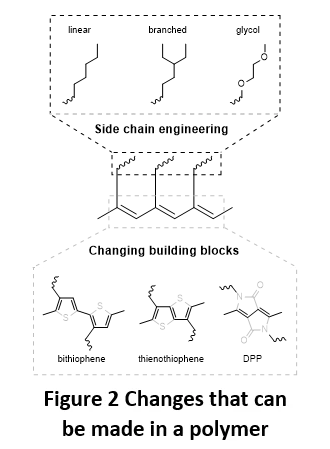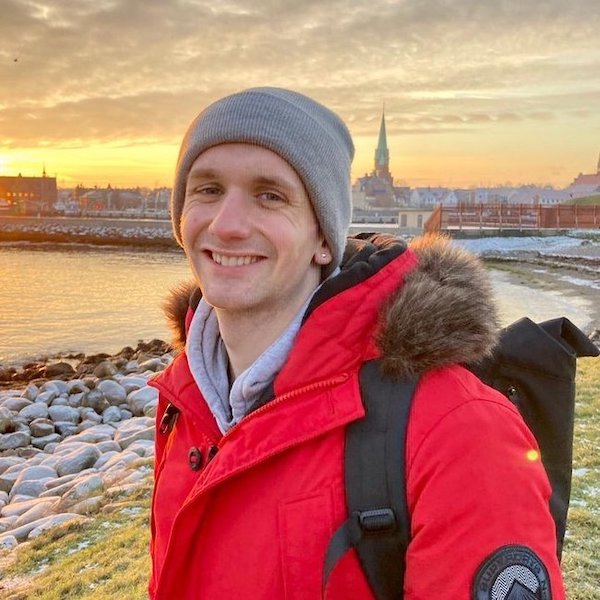In the construct of HORATES, Chalmers University of Technology is the main body to investigate p-doping of polymeric organic semiconductors (Figure 1). One class of materials studied in HORATES are polymers, or plastics. When these polymers have a specific structure of alternating double and single bonds, the charges will be able to move along the polymer backbone. These charges are introduced by a process known as molecular doping. A guest molecule is introduced and donates/abstracts an electron to/from the polymer. In p-type doping, the guest molecule abstracts an electron leaving a positive charge on the polymer. After doping, the electrical conductivity will improve significantly. However, the electrical potential created across hot and cold surfaces of the material (the Seebeck coefficient) will decrease upon doping. A high Seebeck is necessary to create a high enough voltage for power generation. Striking the perfect balance between the two is imperative for creating thermoelectric devices.

Joost’s role at Chalmers and in HORATES is to create new polymers. Polymers are large molecules made up of intricate small building blocks. By altering parts of the building blocks, or using different building blocks entirely, new polymers can be made (Figure 2). Currently, Joost is looking to incorporate ethylene glycol side chains of varying shapes and sizes in building blocks. These glycol side chains ultimately help with doping of the polymer, they make the polymers more stable in air and ambient environments, and they make the polymers easily processable so that they can be used in printing applications. Given the role of Chalmers in HORATES, Joost is also involved with p-doping of polymers both for his own polymers and for other members of the consortium.

As an Early Stage Researcher, Joost hopes to set himself apart as a polymer chemist with a strong background in both synthesis and doping techniques. The wide reach of HORATES will make it one of the frontrunners to uncover how to improve thermoelectric plastics to such a degree that they might be used for contemporary applications.

Joost Kimpel
Home Institution:
Chalmers University of Technology, Sweden
ESR Project:
Synthesis and solution processing of novel p-type conjugated polymers